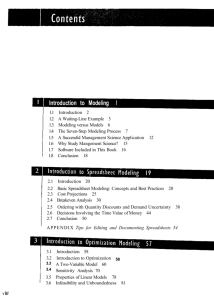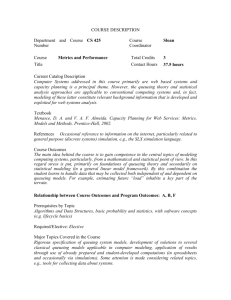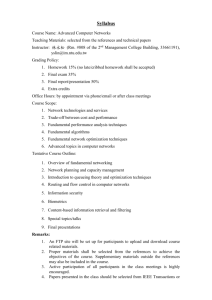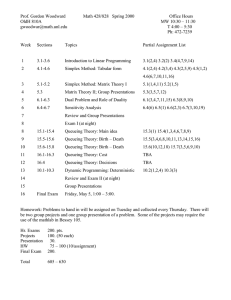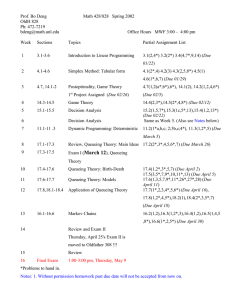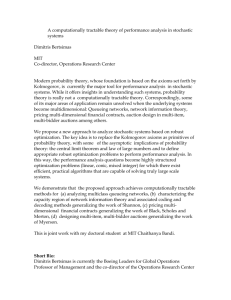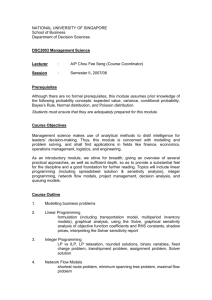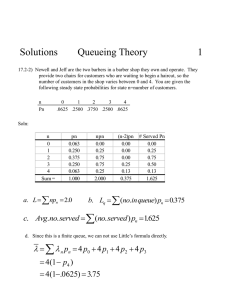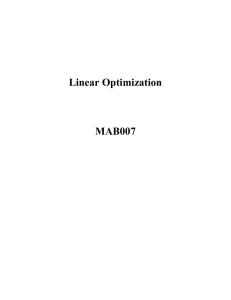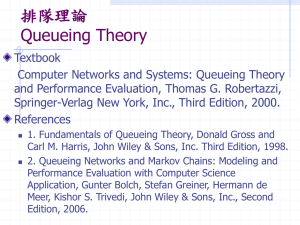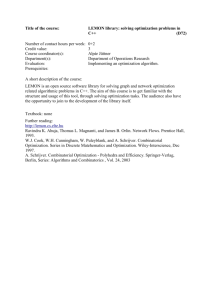Citation Bertsimas
advertisement
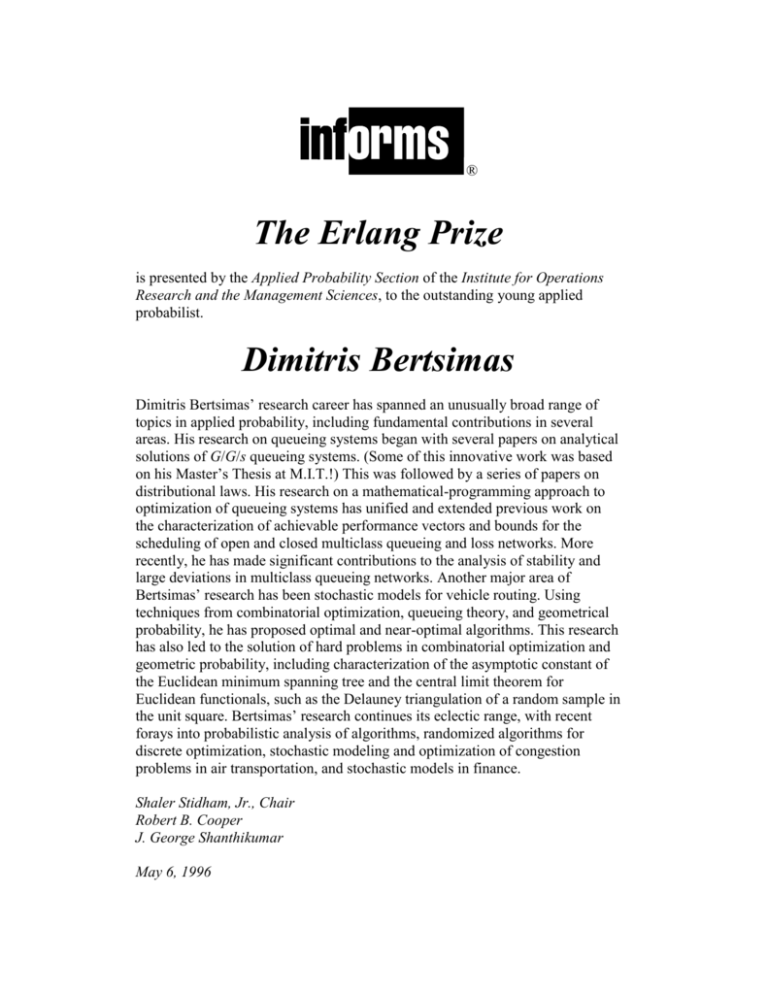
® The Erlang Prize is presented by the Applied Probability Section of the Institute for Operations Research and the Management Sciences, to the outstanding young applied probabilist. Dimitris Bertsimas Dimitris Bertsimas’ research career has spanned an unusually broad range of topics in applied probability, including fundamental contributions in several areas. His research on queueing systems began with several papers on analytical solutions of G/G/s queueing systems. (Some of this innovative work was based on his Master’s Thesis at M.I.T.!) This was followed by a series of papers on distributional laws. His research on a mathematical-programming approach to optimization of queueing systems has unified and extended previous work on the characterization of achievable performance vectors and bounds for the scheduling of open and closed multiclass queueing and loss networks. More recently, he has made significant contributions to the analysis of stability and large deviations in multiclass queueing networks. Another major area of Bertsimas’ research has been stochastic models for vehicle routing. Using techniques from combinatorial optimization, queueing theory, and geometrical probability, he has proposed optimal and near-optimal algorithms. This research has also led to the solution of hard problems in combinatorial optimization and geometric probability, including characterization of the asymptotic constant of the Euclidean minimum spanning tree and the central limit theorem for Euclidean functionals, such as the Delauney triangulation of a random sample in the unit square. Bertsimas’ research continues its eclectic range, with recent forays into probabilistic analysis of algorithms, randomized algorithms for discrete optimization, stochastic modeling and optimization of congestion problems in air transportation, and stochastic models in finance. Shaler Stidham, Jr., Chair Robert B. Cooper J. George Shanthikumar May 6, 1996
